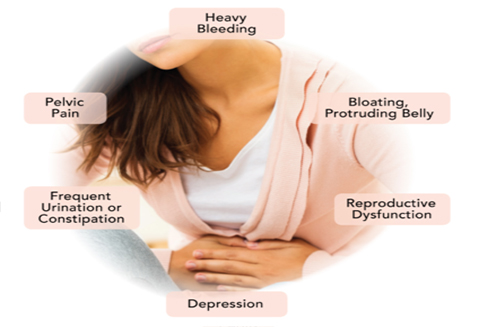
Fibroids are tumors made of smooth muscle cells and fibrous connective tissue that develop in the uterus. It is estimated that 70 to 80 percent of women will develop fibroids in their lifetime — however, not everyone will develop symptoms or require treatment.
The most important characteristic of fibroids is that they’re almost always benign, or noncancerous. That said, some fibroids begin as cancer — but benign fibroids rarely convert to become cancer.
Cancerous fibroids are very rare. Because of this fact, it’s reasonable for women without symptoms to opt for observation rather than treatment.
Studies show that fibroids grow at different rates, even when a woman has more than one. They can range from the size of a pea to (occasionally) the size of a watermelon. Even if fibroids grow that large, we offer timely and effective treatment to provide relief.
Along with the size and number of fibroids, the type can also affect treatment recommendations. The three main types of fibroids include:
The cause of uterine fibroids is not known, although studies demonstrate there may
Most women with fibroids will experience no symptoms at all. However, large or numerous fibroids can cause the following symptoms:
Fibroids are most often found during a physical exam. Your health care provider may feel a firm, irregular (often painless) lump during an abdominal or pelvic exam.
Scans can confirm a diagnosis. These tests are the two main options:
Since most fibroids stop growing and may even shrink as women approach menopause, your doctor might initially recommend observation. However, some fibroids might require more active treatment, depending on:
